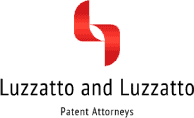
Extending the Term of Patents in the Pharmaceutical Drug Industry in Israel


The Patent Term Extension (PTE) system in Israel is complicated and convoluted. Furthermore, the local PTE provisions, appearing in the Israeli Patent Act Are full of lacunae and ambiguities that have not yet been addressed in the local case law. In addition, the PTE system in Israel is unbalanced and clearly favors the interests of the local generic industry over those of the ethical companies (the innovative companies, manufacturers of original drugs).
The PTE system was incorporated into the Israeli Patent Act in February 1998. The original protection term of pharmaceutical patents or patents which protect a medical device can be extended, subject to compliance with various statutory conditions. This legislative arrangement stems, amongst other things, from the growing international pressure on Israel to improve the level of intellectual property protection in the country.
The principal reasons for incorporating the patent term extension system into the Israeli Patent Act are:
- Compensating the ethical companies for the lengthy regulatory proceedings needed in order to obtain a marketing authorization for new a pharmaceutical product, during which they are barred from commercial use of the patent-protected invention. Due to these lengthy proceedings, the effective patent term during which the ethical companies are able to commercially use the patented invention is much shorter than the nominal 20-year patent term.
- Balancing the impact of the 'Bolar' Exemption (the permission granted to generic manufacturers to conduct trials during the original protection term of the patent for the purpose of obtaining an authorization to market the generic substitutes immediately upon the expiry of the patent).
- International pressure to increase the level of protection granted under IP rights in Israel.
The Israeli PTE system is uniquely cumbersome in that it links the eligibility for and duration of PTEs in Israel to the duration and expiry dates of PTEs/SPCs (supplementary protection certificate) granted in six other countries ("Recognized Countries") which are the U.S., Italy, U.K., Germany, Spain and France. The duration of a PTE in Israel is equal to the shortest term of extension granted for a Reference Patent in the Recognized Countries, but, in any event, a PTE in Israel will expire no later than the earliest of the following dates:
- Five years from the expiry date of the original protection term of the patent (this is the maximal period of extension available in Israel).
- 14 years form the earliest date on which a marketing authorization for the product was granted in the Recognized Countries.
- The earliest date on which an order for the extension of a Reference Patent (PTE or SPC) expires or a reference patent is revoked in one of the Recognized Countries in which a marketing authorization for the product has been granted.
The following are the essential conditions for the grant of a PTE in Israel:
- The material (the active ingredient of the medical preparation or its salts, esters, hydrates or crystalline forms), or a process for its manufacture or its use or a medical preparation comprising the material or a process for its manufacture or medical equipment that requires licensing, is claimed in the basic patent and the basic patent is in force.
- The medical preparation is registered in the Israeli Drugs Registry.
- The registration of the medical preparation is the first registration enabling the use of its active ingredient in Israel for medical purposes.
- No extension order has been previously granted for the basic patent or for the active ingredient of the relevant medical preparation.
- If a marketing authorization for the medical preparation has been granted in the U.S.A., then, the grant of an extension order in Israel in respect of this preparation would be conditioned upon the grant of a PTE for a US reference patent protecting the preparation.
- If a marketing authorization for the medical preparation has been granted in at least one European recognized country, then, the grant of an extension order in Israel in respect of this preparation would be conditioned upon the grant of an SPC for a reference patent protecting the preparation in said recognized country.
Amendment No. 11 of the Israeli Patents Act, which came into force on January 27, 2014, introduced substantial changes to the Israeli PTE system. The following are the major changes that were introduced in the framework of Amendment No. 11:
- Reducing the list of the 21 Recognized Countries, on the basis of which PTEs in Israel were calculated, to six countries only, namely– the U.S., Italy, Germany, the UK, Spain and France.
- Setting tight official due dates for prosecuting PTE applications.
- Adding the possibility of filing a PTE application for a pending patent.
- Regulating proceeding for examination of PTE applications in cases where the relevant PTEs/SPCs for reference patents have not yet been granted in the Recognized Countries.
- Abolishing the possibility of extending the due date for filing a PTE Application. Following the entry into force of Amendment No. 11, The due date for filing a PTE application in Israel in respect of granted or pending patents (90 days from the date of registration of the relevant preparation in the Israeli Drug Registry) can no longer be extended for any reason whatsoever.
Data Exclusivity Protection for Pharmaceutical Products
Another protection, which is available in Israel for medical preparations comprising a new a chemical entity (NCE), should more accurately be regarded as marketing exclusivity.
According to the marketing exclusivity protection provided in Section 64D of the Pharmacists Ordinance, the Israeli Ministry of Health is not allowed during the exclusivity term to rely on information in the registration dossier of the innovative drug for the purpose of approving the marketing of the generic substitute in Israel. Nevertheless, this protection is much more limited than a regular data exclusivity protection insofar that the Israeli Ministry of Health is still able to rely on the innovator’s data for the purpose of registering generic products during the exclusivity period. More importantly, the Israeli Ministry of Health can rely on the registration data to approve the export of generic products to other markets.
The data included in the registration dossier remains confidential even after the expiry of the exclusivity period and third parties are not allowed to inspect it. However, once the exclusivity period expires, the Ministry of Health is allowed to rely on the data in the registration dossier for the purpose of approving the marketing of a generic product.
The duration of the marketing exclusivity period for drugs registered in Israel as of August 07, 2011 is six years from the date of the first registration of the innovative preparation in the Israeli Drug Registry or six years and six months from the date of the first registration of the same preparation in a Recognized Country, whichever expires earlier (the term “Recognized Country” currently encompasses the following countries: U.S.A., Canada, a state which is a member of the EU, Switzerland, Norway, Iceland, Australia, New-Zealand, Japan).
Clearly, improved protection of intellectual property rights will encourage the registration of new drugs in Israel and boost competition between original drugs for the treatment of different diseases. It should be noted that the cost of importing drugs which are not registered in Israel far exceeds the cost of drugs registered in Israel (which are based on local intellectual property rights). Moreover, the absence of registration of these drugs in Israel will preclude any possibility of generic competition which had the power to lower drug prices over time.

The difficult we do immediately, the impossible takes a little longer.”
Relevant Articles
Regarding Patent Term Extensions in Israel
